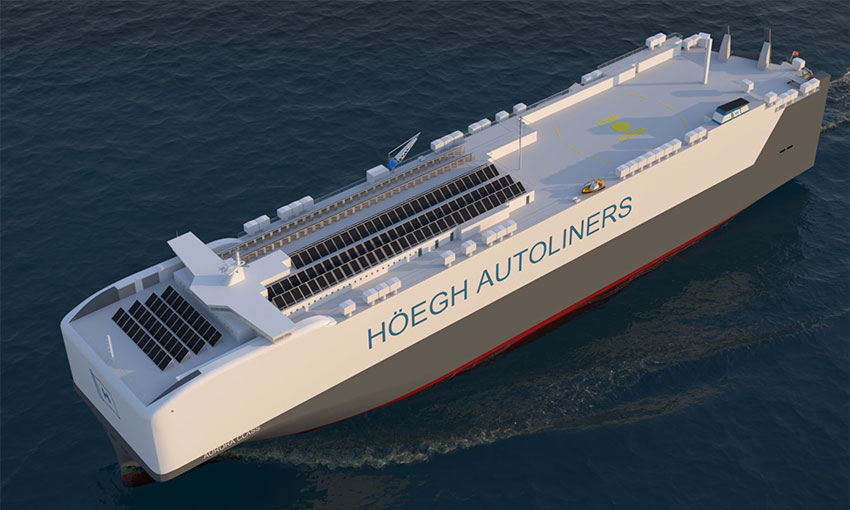Höegh Autoliners has signed an MOU with Xiamen Shipbuilding Industry to introduce a new class of environmentally friendly car carriers.
Höegh said the Aurora Class was a crucial step in its sustainability commitment.
Also, the vessels are designed for 9100 car-equivalent units, which the company said, makes the vessels the largest car carriers in the world.
Höegh CEO Andreas Enger said with the future of cargos and zero carbon fuels in mind, the Aurora vessels are designed for a greener future.
“[They are] the most environmentally friendly car carrier ever built. The Aurora Class represents a big step on our path to a zero emissions future,” Mr Enger said.
“We have entered a Memorandum of Understanding with our professional and long-term partner Xiamen Shipbuilding Industry. This will make it possible to have the first vessel delivered by the end of 2023”
The company said the Aurora class is designed to transport the cargo of the future. Its strengthened decks and enhanced internal ramp systems, enable electric vehicles on all decks and provides more flexibility for heavier project cargo.
The Aurora Class’ multi-fuel engine can run on various biofuel and conventional fuels, including LNG. With minor modifications it can transition to use future zero carbon fuels, including green ammonia.
DNV segment director passenger ships and ro-ro Hans Eivind Siewers said Höegh is working to decarbonise the maritime industry at a new level with the multifuel engine and DNV’s new ammonia-ready notation.
“The Aurora design will further meet the enhanced safety standards and reduce environmental footprint significantly,” Mr Siewers said.
“DNV is proud to support Höegh Autoliners on their path to zero. With the right partners, technology and mindset, we will be able to achieve a safe and sustainable maritime industry.”
Mr Enger said: “We are accelerating our decarbonisation efforts to meet our net zero emissions target by 2040. Together with our customers and trusted partners we will make a significant contribution to a more sustainable maritime industry.”

